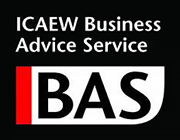Updated: 11th February 2020
Preparing for an Economic Slump
After a long period of economic growth, a global recession within the next couple of years is predicted by many experts. Volatile stock markets and a decrease in global growth over the past two years from 4% to 2.9% suggest harsher conditions could be around the corner.
While we cannot predict the future nor say with any certainty when the next period of economic downturn is going to happen, we can learn from the past and heed the warning signs when it looks like history is likely to repeat itself. The economy moves in cycles and it is highly likely that many of us will experience another recession at least, in our lifetimes. While no recession is identical; varying in length and severity, coupled with challenges unique to the current business landscape, lessons can still be learnt from the economic downturns of the past.
Preparation is key
Preparation can help you manage a downturn and come out the other end relatively unscathed. Taking steps now can help ensure a company is prepared to weather an approaching storm rather than being caught unawares and without a strategy to execute resulting in the company being late to react to changing conditions and having to make key decisions while in crisis mode.
Having an idea about how your business will react and adapt to a challenging economy is not about panicking but about being ready to make strategic changes as and when market conditions dictate them necessary.
Reducing liabilities and improving efficiencies
A challenging economic climate can force companies into streamlining and addressing weaknesses which may otherwise have been allowed to continue. Divesting of less profitable assets or divisions of the business and operating within a more simplified structure can allow for funds to be channelled to core parts of the business with wastage being reduced and efficiency increased.
The more efficient your business is now, the better placed it is to survive a recession or periods of downswing. With lower operating costs and low debt, the greater the buffer there is to weather a drop in income or rising interest rates. Stress testing your business against a range of possible situations is perhaps the most accurate way of determining how prepared the company is for tougher trading conditions.





